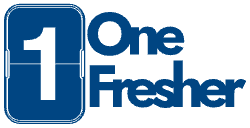Creating a compelling resume with no work experience might seem challenging, but everyone starts somewhere. This comprehensive guide will show you how to highlight your potential and present yourself as a promising candidate.
Understanding the Basics: Resume Structure
1. Header Section
- Full name (in a larger font)
- Professional email address
- Phone number
- Location (city and state)
- LinkedIn profile (if available)
2. Professional Summary/Objective
Your gateway to capturing the recruiter’s attention:
- Keep it concise (2-3 sentences)
- Focus on your career goals
- Highlight relevant skills and attributes
- Align with the job description
Example:
“Detail-oriented Computer Science graduate with strong programming fundamentals and leadership experience from academic projects. Seeking an entry-level software developer position to leverage my knowledge of Python, Java, and web development while contributing to innovative software solutions.”
Maximizing Your Education Section
When you lack work experience, education becomes your strongest asset:
1. Academic Achievements
- Degree and major
- University name and location
- Graduation date (expected if still studying)
- GPA (if 3.0 or higher)
- Relevant coursework
- Academic honors and awards
2. Notable Projects
- Course projects
- Thesis or research work
- Group assignments
- Technical implementations
Example Format:
Bachelor of Science in Computer Science
State University, City, State
Expected Graduation: May 2024
GPA: 3.5/4.0
Relevant Coursework: Data Structures, Algorithms, Database Management, Web DevelopmentHighlighting Alternative Experience
1. Internships and Volunteer Work
- Campus activities
- Community service
- Non-profit contributions
- Virtual internships
- Online collaborations
2. Extra-Curricular Activities
- Student organizations
- Sports teams
- Club leadership roles
- Event organization
- Committee participation
3. Personal Projects
- Portfolio pieces
- GitHub repositories
- Blog posts
- Website development
- Research papers
Skills Section: Your Secret Weapon
1. Technical Skills
- Software proficiency
- Programming languages
- Digital tools
- Technical certifications
- Industry-specific skills
2. Soft Skills
- Communication
- Leadership
- Problem-solving
- Time management
- Teamwork
3. Language Skills
- List languages and proficiency levels
- Include certifications if applicable
Best Practices and Pro Tips
1. Formatting Guidelines
- Use clean, professional fonts (Arial, Calibri)
- Maintain consistent spacing
- Keep it to one page
- Use bullet points for readability
- Include white space
2. Action Words to Use
- Developed
- Coordinated
- Led
- Implemented
- Created
- Managed
- Organized
- Achieved
3. Common Mistakes to Avoid
- Spelling and grammar errors
- Generic objectives
- Irrelevant information
- Unprofessional email addresses
- Dense text blocks
- Missing contact information
Tailoring Your Resume
1. Research the Company
- Study the job description
- Understand company values
- Identify key requirements
- Match your skills accordingly
2. Keywords Matter
- Include industry-specific terms
- Match words from job posting
- Use ATS-friendly formatting
- Focus on relevant skills
Sample Achievement Statements
Transform your experiences into impressive achievements:
- Academic Projects:
- “Led a team of 4 students to develop a functional e-commerce website, completing the project 1 week ahead of schedule”
- “Achieved highest grade in class for database design project, implementing innovative solutions for data management”
- Volunteer Work:
- “Coordinated social media campaigns reaching 5000+ followers for local non-profit”
- “Managed a team of 10 volunteers for campus cleanup initiative, increasing participation by 50%”
- Leadership Activities:
- “Elected President of Computer Science Club, growing membership from 20 to 50 students”
- “Organized 3 technical workshops attended by 100+ students”
Final Steps: Quality Check
Before submitting your resume:
- Proofread multiple times
- Get feedback from mentors
- Test ATS compatibility
- Ensure all links work
- Save in proper format (PDF)
- Create customized versions
- Update LinkedIn profile to match
Conclusion
Remember, everyone starts without experience. Your resume should focus on your potential, eagerness to learn, and transferable skills. Keep it professional, relevant, and honest. Regularly update it as you gain new skills and experiences, and always tailor it to specific job applications.
Pro Tip: Consider creating a master resume document containing all your achievements, projects, and skills. Use this as a base to create tailored versions for specific job applications, selecting the most relevant information for each opportunity.
